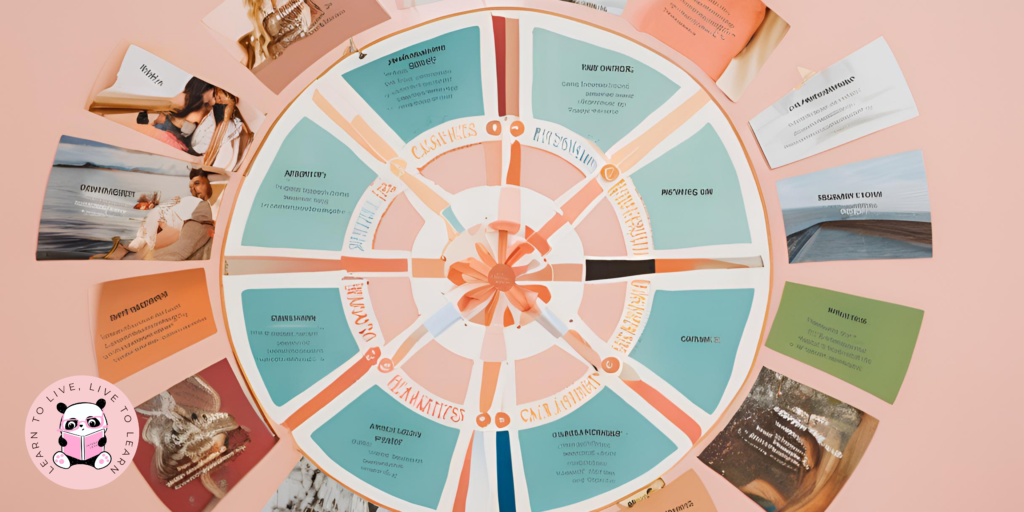How To Get Out Of A Slump: Get Motivated And Stop Procrastinating
Written by Michelle Ong | June 2, 2024 | Growth, Productivity

Motivation and procrastination are like two sides of the same coin. In this post, we explore how we can minimize procrastination and fuel motivation.
Lately, I’ve been feeling uninspired and unmotivated, which reminded me of a particularly low period in my life. During that time, I was living passively—binge-watching dramas and endlessly surfing online to avoid facing the reality and struggles of life. I felt lazy, lost, and disconnected. I craved change and knew I was harming myself by staying stuck, but I didn’t know how to break free. Procrastinating and doing nothing felt easier.
Eventually, though it was slow and painful, I managed to pull myself out of that rut and gradually became more productive and balanced. However, there are still times when I slip back into that unmotivated downward spiral and procrastinate on my usual routine.
This time, I’ve decided to take a more constructive approach to snap out of it by organizing my thoughts and outlining a solution. My goal is to regain my motivation. In this post, I’ll share the process I went through to pull myself out of a slump, get motivated, and reduce procrastination. I’ve broken it down into four easy-to-follow stages. Let’s dive in and explore these steps together!
And if you haven’t read this post on why we often struggle with motivation, you can find it here.
1. Accept That Change Is Needed
“The future depends on what you do today.”
Mahatma Gandhi
First, I had to accept responsibility for my choices and actions. I realized that if I wanted to get out of my unmotivated state and stop procrastinating, I needed to take ownership of my situation. Accepting reality was essential before I could commit to change. Denying the truth would only keep me stuck in the same cycle.
I needed to acknowledge that change was necessary. I reached a point where doing nothing felt worse than taking action. Being honest with myself meant asking tough questions about why I was stuck and what I was afraid of. Facing my fears of failure and difficult situations was challenging but essential.
I needed to dig deep to understand my lack of motivation. Was it boredom, avoiding challenges, or burying negative feelings? This self-reflection helped me see what I was ignoring and what I was risking by not taking action. Accepting that failure and obstacles are part of life was also crucial. I learned to focus on what truly mattered and not let setbacks hold me back.
2. Define The Change To Effect
Once I accepted the need for change, I was mentally ready to take action. I started by defining the changes I wanted and focusing on an outcome that excited me. Then, I asked myself key questions: How much effort was I willing to put in? How determined was I to make this happen? How connected was I to the outcome? How badly did I want this change, and what was I willing to give up for it? These questions helped me get clear on what I wanted and how committed I was to making it happen.
3. Plan The Approach
Next, I outlined the steps needed to make the change happen. I did some research to gather knowledge, identified the skills I already had, and pinpointed any gaps I needed to fill. Recognizing my strengths gave me the confidence to get started, while identifying areas for improvement helped me focus on what to work on. I also made a note of any bad habits I needed to break.
I then set my priorities and broke down tasks into small, manageable actions, integrating them into my daily routine. This made the change feel less overwhelming and easier to tackle.
Small changes can have a big impact. I made adjustments to my environment to support my goals—like setting up my workspace to minimize distractions, playing my favorite music to boost my mood, or using aromatherapy for a calming atmosphere. Even simple things, like getting a cute mousepad or changing my desktop wallpaper, helped make my workspace more enjoyable.
These little adjustments may seem minor, but they made a big difference in how motivated and productive I felt throughout the day. Making these deliberate changes helped me stay on track and reduce procrastination.
4. Don’t Take Failure Personally
I also learned the importance of mastering my emotions and facing my fears. Accepting myself, flaws and all, was key—I realized it’s okay to be imperfect; that’s what makes us human. Life’s challenges often come with meaningful rewards, so instead of avoiding discomfort, I embraced it and rose to the challenge.
I accepted that change is part of life and that setbacks and failures are just bumps along the way. Viewing life as a game, full of quests and adventures, kept me curious and motivated. I started to enjoy the journey of change itself.
I also learned to let go of things I couldn’t control and to be kinder to myself. Celebrating small victories kept me going, but I didn’t let them go to my head. Setbacks became opportunities to learn and grow.
Tracking my progress and staying consistent with my actions kept me motivated. Staying positive and optimistic helped keep my spirits up. I also found that sharing my goals with others made me more accountable. When you tell others your plans, you feel more pressure to follow through, which helps you stay committed and not give up easily.
Don’t Give Up
“Don’t watch the clock; do what it does. Keep going.”
Sam Levenson
Most importantly, never give up!
Life is always changing, with its ups and downs like waves on the ocean. Motivation and procrastination will come and go. Sometimes we’re driven, and other times we’re stuck in a rut. It’s up to us to take control and pull ourselves out of those tough spots.
The 4-step process I’ve shared isn’t a quick fix. It won’t be easy, and challenges will arise. But we need the courage and determination to keep moving forward. Giving up will only keep us stuck.
Remember, only you can truly change your life. Don’t let procrastination win. Find your inner strength and motivation to make the most of every moment. You only get one shot at life, so make it count!
While reigniting your productivity is important, don’t forget about self-care. Balancing both is key to overall well-being. For some fun ways to unwind and insights into Japanese self-care philosophy, check out these posts.
If you found value from this article, please pin and share it with your family and friends!


